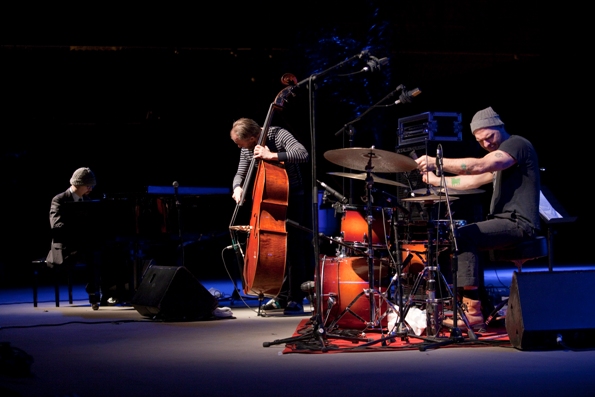
For me, jazz is freedom. Uninhibited and undefined, jazz has the ability to mesh the boundaries of our everyday lives, momentarily emancipating us from ourselves. Dubi Lenz, the artistic director of Israel’s second annual Winter Red Sea Jazz Festival, deserves a hearty pat on the back for his fearless lineup choice. The perfect blend of vintage and offbeat jazz performers, this weekend provided exactly what one would expect from good, solid music.
The “festival” ingredient of the dish, however, remained hidden under spectators’ multi-layered sweaters, scarves and winter coats. Huddling under too-few space heaters and clutching my measly cup of hot tea for dear life in between performances is not what comes to mind when I imagine a festivity. My friends and I, determined to match the music with the muse and equipped with sleeping bags, a banjo and enough wine to simulate a liquid blanket, decided that it would do to create our own atmosphere. Two standout performances and an impromptu jam session at the foot of Eilat’s multi-coloured mountains later, and I say we crafted one hell of a celebration.
My first, the festival’s second, evening of performances was on Friday, which, as I later learned, was granted the prestigious title of “coldest night of the year”. After a few pleasant concerts in which I spent more time trying to produce body heat than actually get into the music, a music miracle happened. They are commonly referred to as the Bad Plus.
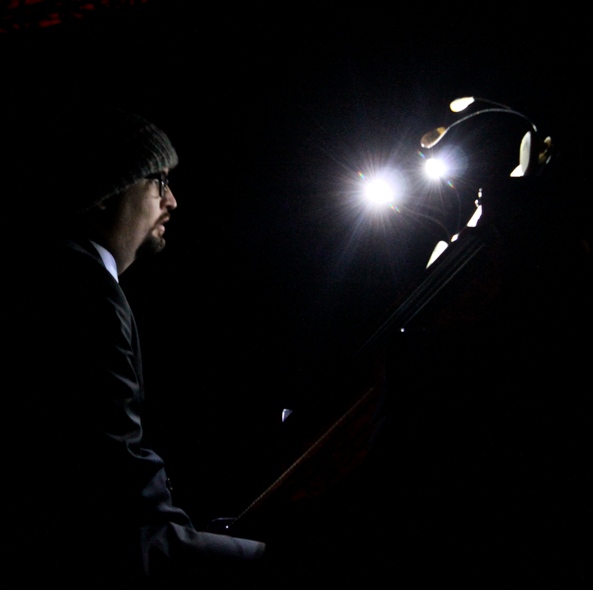
To try and articulate the music of the Bad Plus would be doing a cruel injustice to their art. Unconventional, unorthodox and so out of their minds they’re probably the only sane people out there; the Bad Plus is a rocky ride through a galaxy of musical composition. The adventure began out of total darkness, with only a small light illuminating the black and white of Ethan Iverson’s piano keys. Starting modestly, the tide of chilling piano sonata was soon accompanied by Reid Anderson’s embrace on the contrabass and a still undercover David King getting warmed up on the drums. Slowly gaining momentum, the Bad Plus gradually climaxed to a point of uncontrollable force, each artist becoming one with his instrument; separate as an entity yet drawn together by their tangible musical chemistry. I could sense the crowd vibrating from confusion to shock to utter amazement. Blankets were shed; backs were straightened. Escorted by hallucinatory visual effects projected onto the screen behind them, the trio swept the audience into an overload of the senses. Highlighted by King’s audacious, unparalleled supremacy on the drums, these guys were an awe-inspiring, pulverizing musical entity.
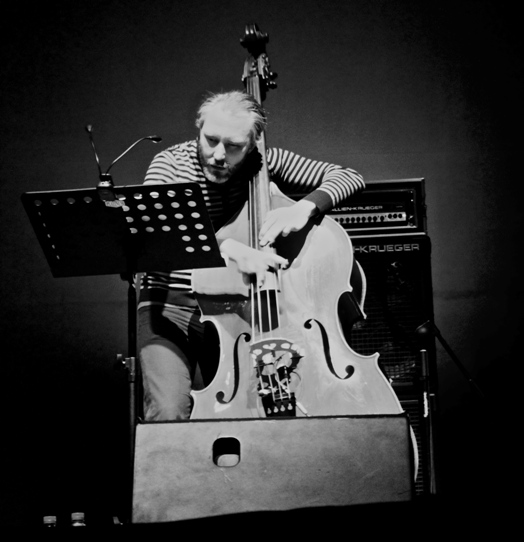
As if to continue the vitality of music, the crowd’s deafening roar of approval solidified their status as some of the most fearless, avant-garde jazz around today. This, I thought, my face plastered with a manic grin, This, is art.
I maintained my high all the way until I reached the taxi line, where I looked on enviously at happy people being whisked away to the direction of heated rooms and heavy blankets. Directing my incredulous driver to the shore and still reeling from the Bad Plus’s electrifying finish, I mused on the emotional power that music provides for our lives. The thought stayed with me until I reached my tent, warming me just enough to crawl into my sleeping bag and fall asleep. Shoes and all.
The morning greeted us with a cool breeze and boundless blue skies. After a quick breakfast of coffee, cold pizza and homemade pie, we set out to the mountains. If I were to have to place a picture for my thousand words of what jazz can induce, it would be the majesty of this natural phenomenon. Immeasurable amounts of time have streaked the mountains with red, black, and even blue rocks; its sheer size and endlessness are impossible to fathom in quantitative size. I recalled how I felt during the Bad Plus and realized how akin the emotions were: a sense of freedom, of relief, overpowered me.
Skipping down the mountain in declaration of a victorious day we were greeted by a surprise: A guitar and a portable drum set, accompanied by two slighter older guys, had set up a jam session in the crevice of two boulders. Grabbing the banjo, a shaker and a pot of coffee we became an impromptu ensemble of six, playing and singing out classic favourites into the mountains.
As we parted, the best of friends, I realized that I didn’t even know their names.
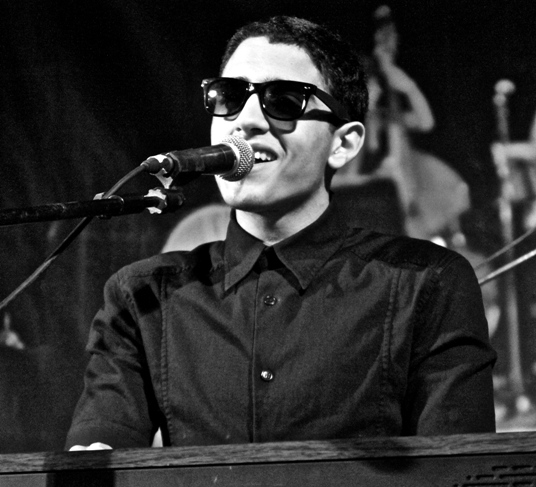
I greeted the last evening of performances with extra blankets and my heart set on Bela Fleck and the Flecktones. While waiting, I was suddenly aware that I had been unconsciously dancing – as if my body had recognized and been infused with some external force before my mind had caught up with it. Making my way to the small stage usually occupied by background ensembles at intermission, I was welcomed by an awesome mix of jazz, blues and classic rock that, for the first time that weekend, really just made me want to dance. Tamir Grinberg, the lead singer and founder of the band nearly two years ago (when he was fifteen) is made up of the stuff of a star. Yes, I admit. He winked at me and I blushed. I’ve always been a sucker for a singer.
Ever since I first saw them perform at a Grassroots Festival in 2004, Bela Fleck and the Flecktones have held a special place in my heart. Already at the edge of my seat just watching them file onto the stage, I remained transfixed, oblivious to the cold, lost in reminiscence throughout their entire performance. Bela – the “Big Flecktone” – utilizes the banjo as if an extension of his limbs, effortlessly juxtaposing the classic bluegrass with their unique, open-ended blend of jazz, funk, and world music. After nine Grammies and the most nominations in different categories of any musician in the history of the prestigious award, Bela Fleck maintains a wonderful lack of pretentiousness as he joins in the crowd in a complete immersion of musical merriment.
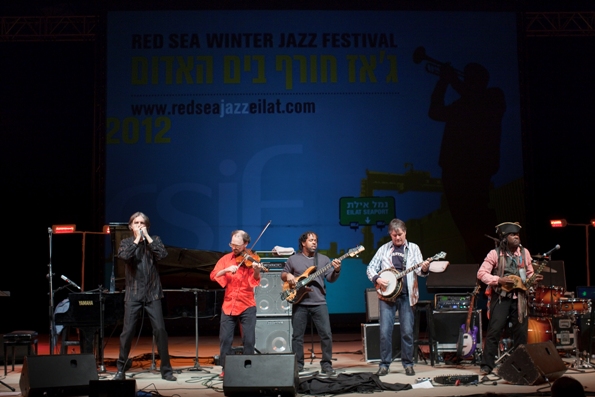
In retrospect, the lack of a simulated “atmosphere” at the festival itself helped mesh the margin between star and spectator: hanging out after the shows it wasn’t surprising to bump into pianist Omer Klein or manage to give a quick compliment to the master trumpeter Avishai Cohen. Surprising myself at how cool I managed to remain in the presence of these modern jazz legends (no, that was not me you saw hyperventilating in the porta-potty before my interview with Victor Wooten), one of the highlights of the weekend was bumping into the Flecktones’s Futureman at the festival’s famous after-hours jam session. I asked him about the difference between audiences according to their nationality. His answer, I felt, summed up the weekend beautifully: “Every country has a different mysticism. If you feel good, and that goodness came from what our music produced, there is no need to focus on differences. Think about it.”


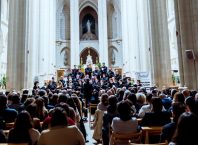



Very well written article, the author sure knows how to make one feel almost present – jazzy!
Good read and enjoyed the Wooten interview! Like your photos as well. I got a couple of minutes with Bela this summer. The man is a global treasure with Zero ego.
Comments are closed.